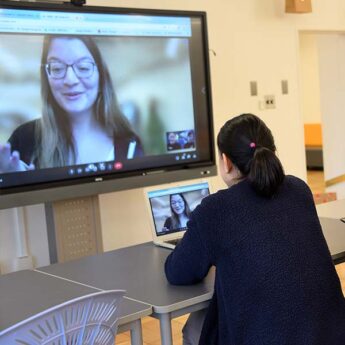In the recruitment industry in Japan, the numbers are staggering—there are more than 20,000 licenced recruitment and temporary staffing firms. Some are small domestic boutique shops, while others are large Japanese or global firms with multiple services and locations across the country.
With abundance of choice comes an opportunity to be highly selective. Regardless, size really doesn’t matter when it comes to providing a high level of service. With a strong service-centric mindset, size and scope add a distinctive dimension that can result in a markedly deeper level of commitment and a long-term association.
The path to building a trusted partner relationship between client and consultant is filled with challenges. First, it requires a track record of delivering on promises, honouring agreed-upon timelines, direct access to decision makers and a quick response. All of this sounds fundamental but, add factors including staff turnover on both sides—especially notorious in the recruitment industry—and it is difficult to achieve continuity.
Hiring managers and recruitment consultants experience a high level of frustration when their key partner leaves and they find themselves back at stage one, reintroducing themselves, understanding pain-points and restarting the effort to build a trusted partner relationship. Months, if not years of effort to move from vendor to preferred vendor to partner to trusted adviser (and in some cases, friend) is nullified. Continuity is clearly underrated in building a long-term client–consultant relationship.
At Randstad, we pride ourselves on being among the top HR services firms in the world. With offices in 39 countries and 117 locations across Japan, we have a unique offering in terms of size and scope of services.
Our ability to deliver is not solely based on being big. More important, we are proud of our commitment to provide a consistently high level of service, with an emphasis on exclusive partnerships.
In fact, our consultants, guided by the belief that narrow and deep segmentation is a key trigger to sustainable growth, handle a limited number of exclusive client partners. Exclusivity, of course, requires both client and consultant to take a leap of faith, to trust in the partnership with understanding that both sides make a commitment to prioritise one another, and to put skin in the game. Allocating time, energy and resources to communication, transparency and accountability through a true, shared agreement is crucial to getting it right.
In my daily meetings with chief executives, human resource directors and senior managers across functions and industries, the feedback on recruiters is identical: “You’re all the same”, and “I haven’t found a recruiter who I can trust so I put the search out to as many firms at once as possible”. On the other hand, others have discovered, through encounters with reputable firms and specialised, committed consultants, that all recruiters are, indeed, not the same.
To work with one trusted partner exclusively can result in a strategic advantage over the competition in hiring the best talent in this candidate-short market. A professional recruitment consultant can play a vital role in helping to attract the best talent to the client’s organisation. Innovative hiring managers leverage the recruiting partner as a brand ambassador.
With scale and depth of global and local knowledge, Randstad is well-positioned to support needs ranging from blue collar temporary staff, highly specialised senior managers and early retirement programmes to outsourcing of the entire recruitment process.
With Japan’s rapidly ageing population, declining birth rate and a marginally low unemployment rate, competition for the best talent across the work continuum—from blue collar temporary workers to management level positions—is arguably more challenging than it has ever been.
For firms in need of HR solutions, moving from a vendor–client mindset to an exclusive partnership strategy is an effective way to tackle this growing challenge.







